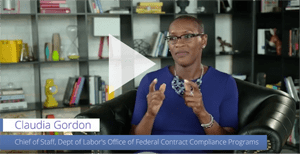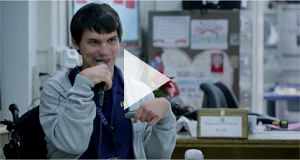Initiatives and Research
Google’s support of accessibility extends beyond products to include research, education, and design efforts.
Accessible Web Initiatives
Google actively promotes an accessible web by serving on standards and advisory committees. We're currently involved with the organizations below, and we'll continue to update this site as we make progress in our offerings.
FCC Video Programming Accessibility Advisory Committee (VPAAC)
Created by the FCC to develop recommendations for increasing accessibility to video content in various forms, the VPAAC included an appointee from Google, which Naomi Black and Ken Harrenstien shared over a two-year term. Read more about the VPAAC >
FCC Consumer Advisory Committee (CAC)
The purpose of the CAC is to make recommendations to the FCC regarding consumer issues, including accessibility. Eve Andersson served as a member of the CAC for a two-year term. Read more about the CAC >
Web Content Accessibility Guidelines (WCAG)
The WCAG is one of the most widely-accepted international standards for accessibility. Two Google employees are involved in the WCAG. Loretta Guarino Reid, a senior software engineer, is one of the editors of the Web Content Accessibility Guidelines (WCAG) 2.0. Shawn Lauriat, a senior software engineer, serves as a member of the Accessibility Guidelines Working Group.
Google Impact Challenge: Disabilities
To further our commitment to accessibility, we have launched a global initiative called Google Impact Challenge: Disabilities. The program advances ideas and emerging technologies that increase independence and opportunity for people with disabilities. Learn more about the Google Impact Challenge for Disabilities >
Tech Transformation
Length of video: 1 minute 11 seconds
User Experience
One of Google's core principles is "Focus on the user and all else will follow." The Google User Experience (UX) team believes that usability and accessibility go together. We integrate accessible design thinking throughout the entire product development cycle.
Our UX Researchers work with people from all backgrounds and with a variety of abilities in order to understand what matters to our users in their daily lives. Based on these insights, we aim to design products that are inclusive and consider the needs of all users. People who are interested can sign up to participate in user studies and get rewarded for their time.
A Day with Jeff—
Technology and Essential Tremor
Length of video: 12 minutes 50 seconds
A Day with Danny—
Technology and Cerebral Palsy
Length of video: 11 minutes 32 seconds
Accessibility Trusted Tester program
Our Accessibility Trusted Tester program is one way that we gather feedback about Google products. Testers try new Google products before the general public, then provide feedback directly to Google engineering teams.
If you're passionate about providing feedback and improving accessibility, we invite you to learn more and apply for the Accessibility Trusted Tester program.
Research and Education
Award for Inclusion Research Program
Through our Award for Inclusion Research program, we support academic research that has the potential to directly impact the lives of people with disabilities globally. Since the program began in 2005, we've provided funding to dozens of accessibility-related research projects in topic areas including Speech, Human-Computer Interaction, Mobile, and Education Innovation. The full list of Research Awards recipients can be found on the Google Research website.
Education Initiatives
In order to raise awareness about accessibility and promote accessible development, we're involved in the following initiatives:
- Disability Fundamentals for Managers is a free, open-source, 30-minute interactive training that helps managers learn about disability awareness, etiquette, disclosures and accommodations, and holding more accessible meetings and events. Google adapted this internal course for use by any company around the globe.
- In Teach Access, we collaborate with other companies, universities, and disability advocacy organizations to integrate accessibility into core curriculum in computer science, human-centered interaction, design, and other key disciplines at universities across the United States. We believe that accessibility is a core skill that students should learn and bring into the workforce.
- We provide free, open-source testing tools to developers: Chrome Accessibility Developer Tools for web, and Android Accessibility Testing Framework for Android.
- We provide a free online course, Web Accessibility, open to anyone in the world.
- We publish papers such as "Enhancing Android Accessibility for Users with Hand Tremor by Reducing Fine Pointing and Steady Tapping" by Yu Zhong, Astrid Weber, Casey Burkhardt, Phil Weaver, and Jeffrey P. Bigham in order to share learnings with others who develop accessibility solutions.
Projects supported by Google
- ASL-STEM Project Richard Ladner, University of Washington
- MobileASL via Android Eve Riskin, University of Washington
- NavPal: Mobile Navigation Aid for the Visually Impaired M. Bernardine Dias, Carnegie Mellon University


